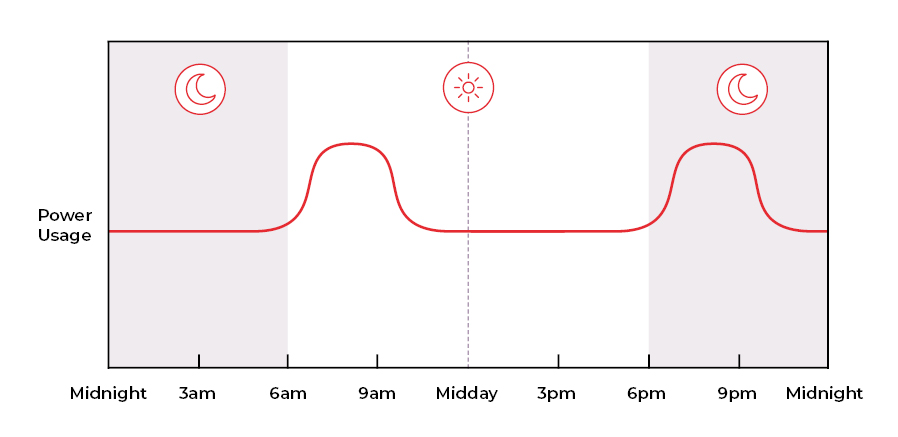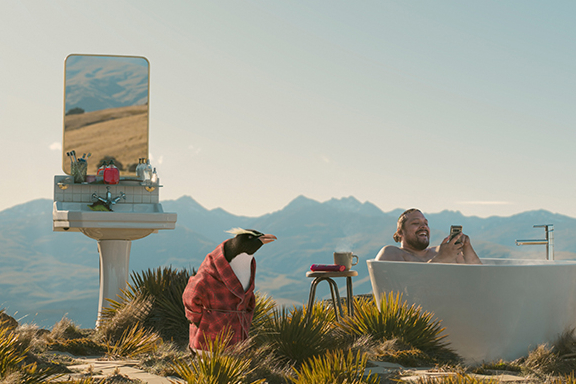In short, there are two ‘peaks’ in demand for electricity during the day; in the mornings when most people are getting up and showering, brewing their morning coffee, then again in the early evening when the lights and heat pump get turned on, dinner is cooking and the kids are being bathed.
Typical peak usage times across homes in New Zealand homes

Note – this diagram is for illustrative purposes only
If more power usage can be shifted to off-peak times or less used during the peaks, like not heating our hot water cylinders when we don’t need to, we can help to reduce reliance on non-renewable electricity generation, which is good for everyone who calls New Zealand home.
In 2023, we ran a small three-month trial in Manawatu, Taranaki and Wanganui to check if managing customers’ hot water was a good idea. The vast majority of these customers said they’d be on board for a permanent hot water control programme which gave us the reassurance we needed to make it a more permanent thing.








